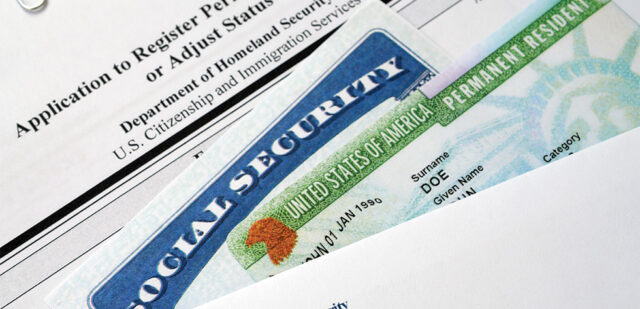Just when you finally feel settled and established in the United States, you may check the calendar and realize that your authorized duration of stay for your nonimmigrant visa is set to expire soon. It may seem nonsensical to you to have to uproot everything and apply for an extension from elsewhere, just to resume your life in the U.S. in due time. Well, you may be glad to discover that applying for a visa extension within the country’s borders may be permissible, under certain circumstances. With all that being said, please follow along to find out how to get a visa extension granted in the United States and how one of the proficient family based immigration lawyers at Lupton Law LLC can help you take the right steps toward doing so.
How can I get a visa extension granted in the United States?
Simply put, you may file and submit Form I-539, Application to Extend Nonimmigrant Status, with the United States Citizenship and Immigration Services (USCIS). You may be expected to accurately depict the following information within this form:
- Your first name, date of birth, country of citizenship, and mailing address.
- Your current nonimmigrant visa status and the date it is set to expire.
- Your explanation for why you wish to extend your stay in the U.S.
- Your dependent’s personal information, if included in your application.
- A copy of your passport’s biographic page.
- A copy of your current nonimmigrant visa.
- A copy of your I-94 arrival and departure record.
- Supporting evidence of your reason to extend your stay in the U.S.
- Supporting evidence of your relationship to your named dependents.
This is not to mention the required filing fee of $470 if you apply by mail or $420 through the USCIS Electronic Immigration System (ELIS).
What happens if my visa extension application gets denied?
If you wish to remain in the United States while your visa extension application is being processed, you must file it within 45 days of your nonimmigrant visa’s expiration date. Unfortunately, after these 45 days, you may get word that the USCIS decided to deny an extension. This may be because your nonimmigrant visa type does not qualify for one; your passport was found to be expired; you were found to commit a crime or immigration violation; or otherwise.
At any rate, you must take it upon yourself to exit the country before a removal order is made against you. The last thing you want is to be considered an unlawful presence at this time. While there is no formal appeal process for this, in your home country, you may try resubmitting your application with the necessary, additional documents and request that the USCIS reopen your case (i.e., file a Motion to Reopen). This may entail having to contact and work with the U.S. Embassy or Consulate in your home country.
There is no sense waiting to apply for a visa extension if you already know you wish to remain in the U.S. So please reach out to one of the talented family-based immigration lawyers at Lupton Law LLC today.



